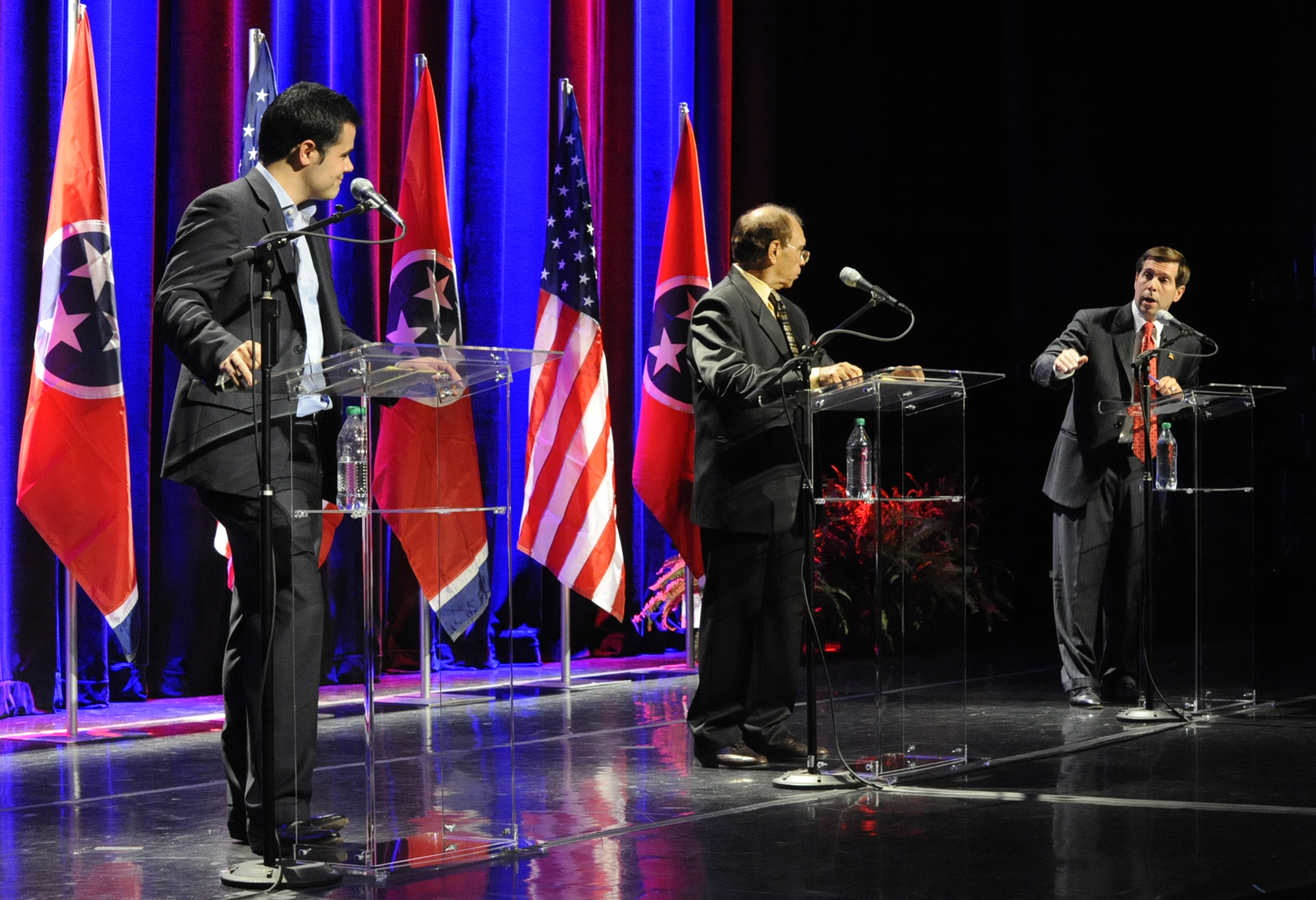Tennessee 3rd District debate in a vacuum
Friday, January 1, 1904
When Chuck Fleischmann first ran for his 3rd District congressional seat two years ago, he adamantly refused to participate in public debates. Now we know why.
In his first such debate -- on Tuesday night, and now in his pursuit of a second term -- Fleischmann appeared uncomfortable yet uneasily eager to appear assertive and in charge, which had the contrary effect of making him seem defensive and rote, his scripted responses more programmed, strident and vacuous than convincing.
By comparison, Weston Wamp, the congressman's 25-year-old novice challenger, came armed with a broader view and more nimble, reasoned and naturally assured responses. In arguing persuasively for bipartisan outreach to break the congressional gridlock in Washington, he seemed more the thoughtful veteran on the stage than his incumbent opponent, who bragged about his lockstep opposition to any give-and-take with the Obama administration.
The third candidate in the debate, Ron Bhalla came off more humble and human, even though he discounted the merit of his candidacy by promising always to vote, in the widening digital age, according to the continually polled views of the majority of his constituents.
And Scottie Mayfield? Well, it's hard to know much about what positions he advocates, how he would defend them, and how he would handle himself on the public stage in debate. Whether out of fear, timidity or presumptuous arrogance, he wrongly refused to participate in the debate, sponsored by this newspaper and WRCB-TV Channel 3.
Mayfield's absence, of course, left him open to legitimate criticism by all three candidates Tuesday. Each reasonably criticized Mayfield's recent statements in which he fatuously charged that recipients of Medicaid (TennCare in Tennessee) were "non-taxpayers," and said that Medicaid should be abolished and its medical mission given to churches and charities.
In fact, many adult recipients of Medicaid hold jobs and work. Even if their federal income tax is low, they pay federal payroll taxes, state and local sales and payroll taxes, and in many cases property taxes. As for mindlessly saying Medicaid could be handed off to churches and charities, that would beg inhumane disaster. TennCare, for example, provides medical care to the poorest one out of four Tennesseans, mainly those at or below the federal poverty level.
Charities and churches could never absorb that burden. In Tennessee, they do not provide, and are not capable of providing, care even to the 350,000 poor Tennesseans who were callously cut off the TennCare rolls by former Gov. Phil Bredesen. So these citizens remain largely uninsured now, and their lack of preventive care fuels hospitals' cost for emergency care -- the most expensive form of health care.
In Mayfield's previously best-known statements, caught on a You-Tube, he couldn't answer a simple, direct question by a college student, who asked what his "top two or three priorities" would be in Congress. Rather, he mumbled that he had talked to some fellows about that, and had some papers on it somewhere in his desk. Missing the debate Tuesday cost him a chance to recover from the YouTube damage.
Fleischmann stumbled similarly when he was challenged by Wamp as to how he expects to get the several hundred million dollars necessary to finish the new lock at Chickamauga Dam, if he can't and won't work with the Obama administration and won't tolerate earmarks. He said the lock work wouldn't take any new taxes or earmarks or new federal revenue -- that it just required a revision of the trust fund from which such infrastructure projects are finished. Yet he never explained how that could be achieved, or why he hasn't already accomplished that feat if it's feasible.
His proposal for reducing the federal debt without any additional revenue was more unreal: Just roll back current federal spending to the level that prevailed when George W. Bush left office, Fleischmann said, and freeze spending there for 10 years -- never mind inflation. He didn't mention that Bush's spending policies added $6 trillion to the debt by his last budget, plus another $1.5 trillion in the pipeline to wind down his two wars on the nation's credit card. Nor did he note that federal tax revenue is now down to 15.5 percent of the economy, three points lower than the historical average, due to the 2007 Bush recession and the jobs lost as a consequence of it.
The debate might have checked such fantasies had it included the two highly credible Democratic primary candidates Dr. Mary Headrick and Bill Taylor, both experts on health care. Absent a full deck, it left Wamp looking like he really might take his father's seat some day.
